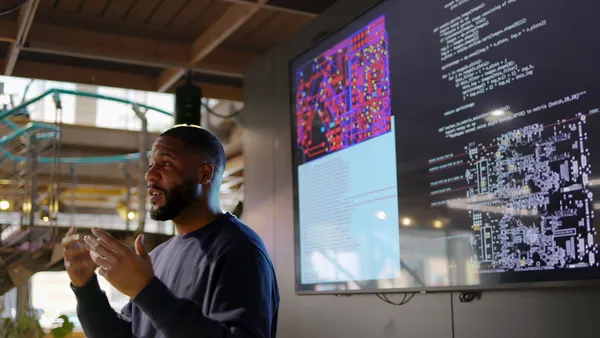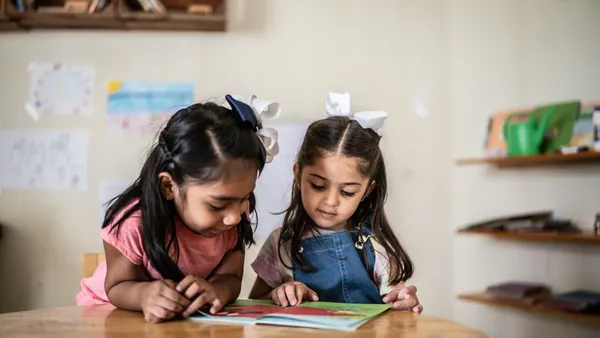Dive Brief:
- Makerspaces provide an opportunity for learning experiences that reinforce creative and critical thinking alongside grit and independence, with activities championed by educators largely relying on students to use multiple skills simultaneously, as detailed in a video on learning mindsets from Edutopia.
- Makerspaces and other project-based learning experiences can help motivate students, particularly if they’re working on an idea they’ve selected on their own, ultimately teaching them how to make choices, complete independent work, organize themselves, and even learn from their mistakes.
- Students can also develop social-emotional learning tools and develop cognitive tools in these experiences, said Dr. Linda Darling-Hammond, president and CEO of the Learning Policy Institute.
Dive Insight:
Makerspaces give students a hands-on experience where they can experiment, learn and fail without the pressures of performance. Failure is actually part of the fun of makerspaces, where set projects are rare and students are encouraged to create, build and bring their own ideas to life.
But makerspaces can also infuse other skills into students. In these Petri dishes of experimentation, when the pressure of grades or assessments is lifted, it’s natural for learners to make multiple passes and try different pathways to bring an idea to fruition. In doing so, they tap into critical thinking and problem solving skills, changing the way they think, according to a paper published by the USC Rossier School of Education.
“Don't tell them what to do,” noted the paper. “Ask them the kinds of questions they should be asking themselves to get them thinking critically. Then send them off to investigate more effective approaches.”
School should be a time of experimentation, a safe haven for students to develop skills they’ll need after they graduate. Maker education encourages children to discover their own ideas and experiences as they solve problems and develop solutions on their own.












